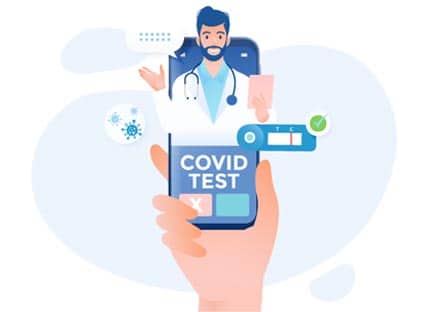The rub with something that’s so common is that there’s a tendency to simply brush it off as a minor issue. In fact, although half of the general population will suffer a bout of abdominal pain sometime during their lifetime, only about 40% of them will seek treatment, leaving many underlying causes undiagnosed and untreated.
While it’s true that in many cases a stomachache can be chalked up to an upset stomach, a pulled stomach muscle, a virus, or a case of food poisoning, abdominal pain can be a symptom of a more serious condition or disease.
It’s important to understand more about abdominal pain, says our skilled team of health professionals at Formé Medical Center in White Plains, New York. In this blog, we’ll explain the 4 types of abdominal pain and symptoms to watch out for.
Types of abdominal pain explained
Abdominal pain typically breaks out into four types, which are differentiated by where the pain is located and how severe the pain is, as well as the frequency of the pain.
1. Generalized abdominal pain
Generalized abdominal pain triggers discomfort in more than half of your stomach area. Minor conditions that you can generally take care of on your own typically fall under this category, such as gas, indigestion, or a stomach flu. However, severe generalized abdominal pain may also be a symptom of a more serious condition like an intestinal blockage.
2. Localized abdominal pain
As opposed to generalized abdominal pain, localized abdominal pain causes pain in a specific area, which may mean there’s a problem with an abdominal organ such as your stomach, intestines, gallbladder, or appendix.
3. Cramp-like abdominal pain
As its name suggests, cramp-like abdominal pain is characterized by stomach cramps often accompanied by gas pains, the discomfort of feeling bloated, and diarrhea. Although cramp-like abdominal pain can be severe, in a vast majority of cases, you’ve simply eaten something that’s not agreeing with you and your symptoms will pass. However, if the gas and bloating is accompanied by a fever or lasts longer than a day, contact your doctor for further evaluation.
4. Colicky abdominal pain
If you’re a parent, you may have experienced colic with your baby, and crying spells. In terms of abdominal pain, colicky abdominal pain is acute, severe pain that comes in waves that can stop as suddenly as it starts. Gallstones and kidney stones are two serious and painful conditions that your doctor may diagnose by colicky abdominal pain symptoms.
Pain intensity not indicative of seriousness
The problem with self-diagnosing abdominal pain is that pain manifests differently from person to person, as well as the ability to describe where your specific pain is located.
As a result, someone with a high pain threshold may describe their abdominal pain as mild compared to another person whose threshold is lower. Further complicating matters is that the severity of abdominal pain isn’t necessarily indicative of the severity of the underlying cause.
Case in point — kidney stones. If you’ve ever passed a kidney stone, you know the pain is often intense but the condition isn’t life-threatening. Other serious medical conditions like the beginning stages of appendicitis or colon cancer may cause slight pain or be devoid of pain altogether.
Seek treatment right away for persistent or sudden pain
Since abdominal pain has a broad spectrum of underlying causes ranging from minor to life-threatening and everything in between, a good rule of thumb is to call your doctor right away if your abdominal pain continues for more than a week.
Be vigilant in addressing accompanying symptoms like vomiting, persistent diarrhea, bloody stools, an inability to have a bowel movement, or pain between your shoulder blades. These associated symptoms could indicate a serious and possibly life-threatening condition.
Our highly-skilled providers conduct a thorough workup and review of your symptoms and medical history. We may perform additional diagnostic testing like blood work, a urinalysis, an ultrasound, or X-rays to get to the bottom of your symptoms and create a treatment plan to address your condition.
Prescription drugs, changes in diet, and even surgery are possible treatment options for abdominal pain and are dependent on the underlying cause.
If you are suffering from abdominal pain, contact Formé Medical Center. Call our office or request an appointment online today.







